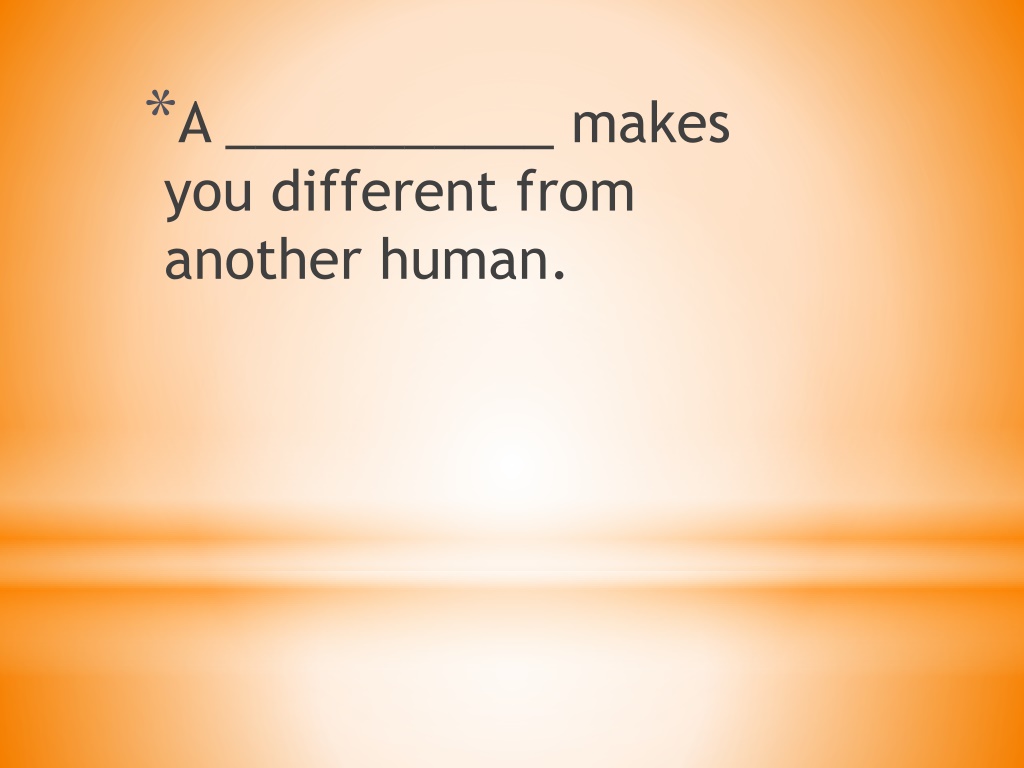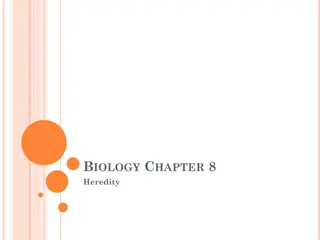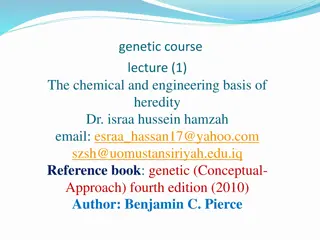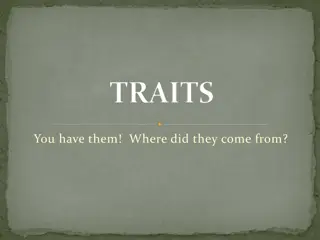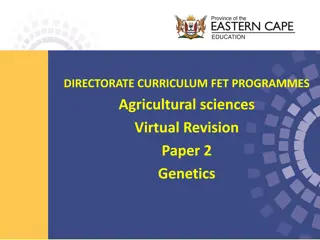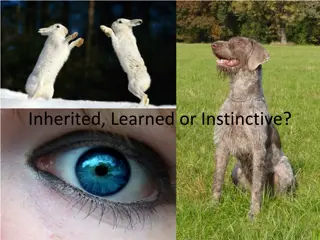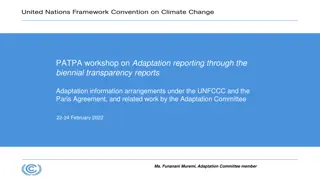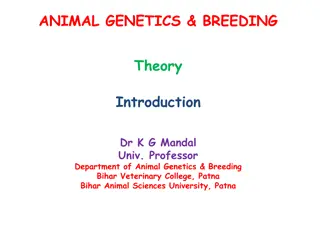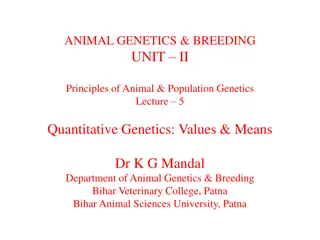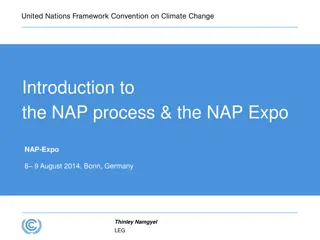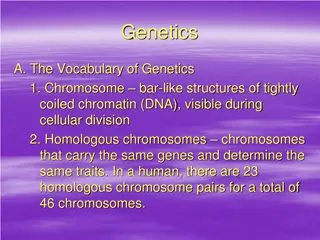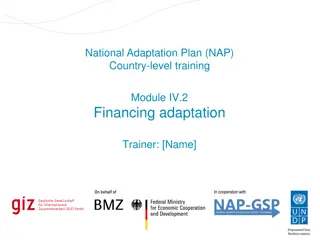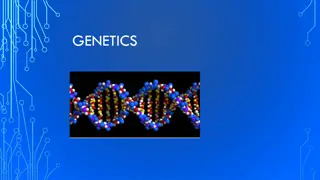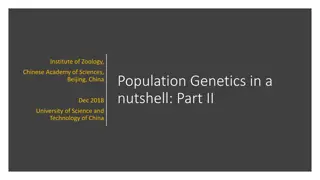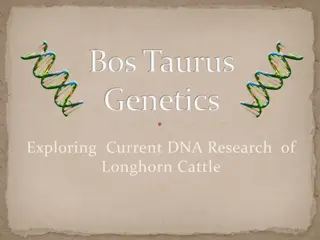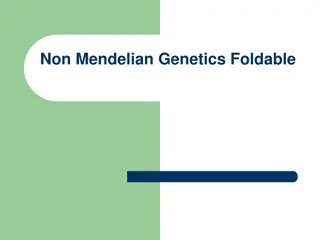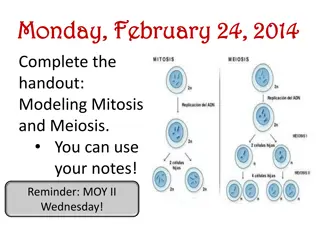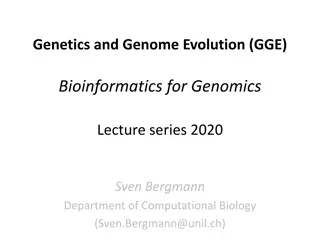Understanding Genetics and Evolution through Traits and Adaptation
Exploring concepts like traits, mutations, adaptations, and genetic changes in organisms to comprehend what makes individuals unique and how species evolve and adapt over time. The content delves into the inheritance of traits, the role of DNA segments, and distinguishing characteristics in living beings.
Download Presentation

Please find below an Image/Link to download the presentation.
The content on the website is provided AS IS for your information and personal use only. It may not be sold, licensed, or shared on other websites without obtaining consent from the author. Download presentation by click this link. If you encounter any issues during the download, it is possible that the publisher has removed the file from their server.
E N D
Presentation Transcript
*A ___________ makes you different from another human.
*A Trait makes you different from another human.
*A mutation cannot be inherited. True or False?
*A mutation cannot be inherited. True or False?
*Species can change over time to adapt to their environment. True or False?
*Species can change over time to adapt to their environment. True or False?
*Adaptations are only physical traits. True or False?
*Adaptations are only physical traits. True or False
*Changes to genes that help an organism survive happen quickly. True or False?
*Changes to genes that help an organism survive happen quickly. True or False?
6.Which of the following is NOT an example of a trait? *a. blue eyes *b. salamander *c. blonde hair *D. tall
Which of the following is NOT an example of a trait? *a. blue eyes *b. salamander *c. blonde hair *D. tall
A segment of DNA is a _____. *a. trait *b. cell *c. gene *d. model
A segment of DNA is a _____. *a. trait *b. cell *c. gene *d. model
Which of the following is a behavioral adaptation? *a. blue whales migrating to mate and give birth *b. tree frogs have long, sticky tongues *c. alligators eyes are on top of their heads to help them see above the water *d. hedgehogs have stiff spines sticking out of their bodies
Which of the following is a behavioral adaptation? *a. blue whales migrating to mate and give birth *b. tree frogs have long, sticky tongues *c. alligators eyes are on top of their heads to help them see above the water *d. hedgehogs have stiff spines sticking out of their bodies
Which of the following is a physical adaptation? *a. A bird has a mating call to attract a mate. *b. A snowy egret will stand still in the water with its wings outstretched because fish are attracted to the shade. *c. Burmese pythons are able to unhinge their jaws to swallow large prey. *d. American wigeons will steal food right out of the bill of an American coot.
Which of the following adaptations does NOT discourage predators? *a. quills on porcupines *b. eye spots on butterfly wings *c. thorns on roses *d.tube-like mouth
Which of the following adaptations does NOT discourage predators? *a. quills on porcupines *b. eye spots on butterfly wings *c. thorns on roses *d. tube-like mouth
Humans can change an organisms _____ by choosing which organisms will reproduce. *a. food *b. predators *c. genes *d. sex
*Humans can change an organisms _____ by choosing which organisms will reproduce. *a. food *b. predators *c. genes *d. sex
Which of the following is an adaptation of polar bears to survive extreme cold? *a. layers of fat *b. reproducing *c. special stems that store water *d. special heat resistant protein
Which of the following is an adaptation of polar bears to survive extreme cold? *a. layers of fat *b. reproducing *c. special stems that store water *d. special heat resistant protein
Which of the following is an adaptation to survive drought? *a. layers of fat *b. becoming less active *c. special stems that store water *d. special heat resistant proteins
Which of the following is an adaptation to survive drought? *a. layers of fat *b. becoming less active *c. special stems that store water *d. special heat resistant proteins
*Camouflage is an example of _____. *a. natural selection *b. behavioral adaptation *c. selective breeding *d. physical adaptation
*Camouflage is an example of _____. *a. natural selection *b. behavioral adaptation *c. selective breeding *d. physical adaptation
Specific traits for a show dog is an example of _____. *a. natural selection *b. behavioral adaptation *c. selective breeding *d. physical adaptation
*Specific traits for a show dog is an example of _____. *a. natural selection *b. behavioral adaptation *c. selective breeding *d. physical adaptation
